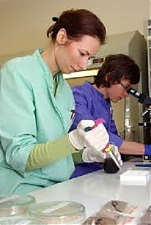Education and Science, Estonia
International Internet Magazine. Baltic States news & analytics
Tuesday, 23.04.2024, 13:00
Scientists warn PM of collapse of Estonia's science system
 Print version
Print version |
|---|
"Financing of Estonian science from the state budget
has decreased to approximately 0.5 percent of gross domestic product (GDP),
which will soon make it impossible to keep the science system working," it
stands in the letter.
"The Estonian science system is effectively on the
brink of collapse and the situation requires immediate interference. Recently
attention was drawn to the success story of Estonian science to date and the
danger of its collapse also in the top science magazine Nature (Schiermeier Q.
2019. How Estonia blazed a trail in science. Nature 565: 416-418)."
"To solve the aforementioned problems, a societal
agreement was concluded in December to increase financing of science to one
percent of GDP. Representative bodies of scientists have subsequently discussed
how to use the science funding potentially to be added in the most appropriate
and effective manner," the three organizations say.
They also point out that the gap between the salaries of top
specialists in private sector and public sector has become so wide that without
substantive changes there will be no scientist corps left in Estonia soon.
"Salaries at universities have already dropped below
the salaries of teachers in general education schools. There is a chronic
shortage of teachers and doctors in society and soon also the scientists who
teach them will disappear. After that, the Estonian economy will move further
away from smart economy, which is exactly the opposite to what is
desired."
The petition also draws attention to the reduction in the
number of scientists in Estonia, as the number of academic workers at the
country's public-law universities dropped to 8 percent in the period from
2015-2019. The number of scientists as a proportion to the population in
Estonia is three to four times smaller than in developed countries and the
country has begun to move away from the countries that it considers as examples
to follow.
"It is obvious that there are not too many scientists
in Estonia, especially if we wish for our country to be science based and
innovative. Estonia is the only country in the European Union lacking, for
instance, a sustainable career system of scientists (so-called tenure), which
would motivate young people to decide in favor of a career in science; at
present it is being established, but sufficient financing must go with it as
well," the petition adds.








 «The Baltic Course» Is Sold and Stays in Business!
«The Baltic Course» Is Sold and Stays in Business!

